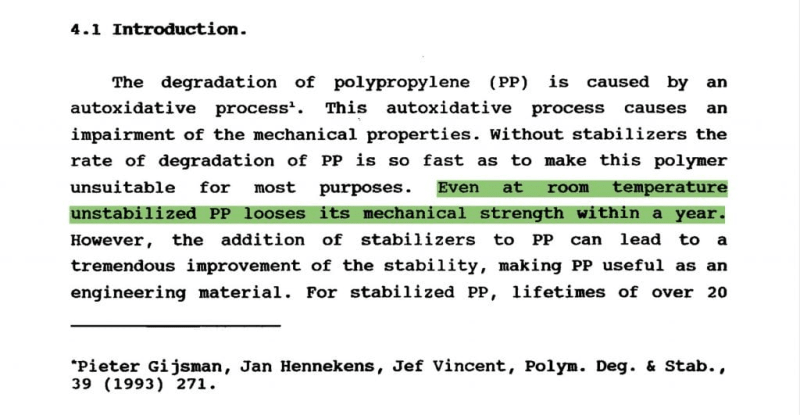Demon3,
These are that you were claiming in your first post and my reaction was related to them;
“What did I find?
1/ Plastics are 0.5% of materials and waste
A: It might be true. But the remaining waste mostly recyclable, biodegradable, and do not harm environment. There are exceptions of course, nuclear waste, chemical industry leftovers, damp from ships, factories, untreated water and sewage release etc... but these are regulated and can be stopped. Plastics are not like that without regulation.
2/ Plastics massively reduce waste
A: if everything depends on human behaviour, therefore your claim is not correct. And depends on what we understand the term of waste. Plastic nanoparticles are the harmful waste.
3/ Plastics are usually the greenest option
A: The same again, it depends on what we understand from the term, green. My understanding on this discussion the green is whatever the material is does no cause problem on the living things in nature now or later.
4/ People cause litter, so blaming materials is unjust
A: This is the main thing. People litter, although we want that littering should stop and people should be responsible for it, this did not happen, will not happen. In the modern (this is questionable) society we could not stop many harmful things somehow. I wonder why?
5/ Plastics degrade rather rapidly (a plastic bag in under one year outside)
A: I guess I should leave this to the experts. However the subject does not end with plastic bags, there are many.
6/ Most microplastics research is junk and there is no credible evidence of harm
A: I left 3 youtube shortcuts above. The first explains and answers this. The other is the research paper below. In the same page with the research paper there are others completely reject you claim.
7/ Plastics are not a significant threat to turtles or whales
A: I think you need to watch the youtube videos why plastics are harmful for all the animals and human.
8/ There are no floating islands of plastic or “soup"
A: I guess you deny all the video evidences from the countries in my previous post. You have blind eye on them.
9/ NGOs have lied to us to get our donations
A: I do not know, it is possible.
This and scientific research papers in the website give evidence about plastic nanoparticles and their harmful effect.
I hope I did not misunderstand your post. Regards.

